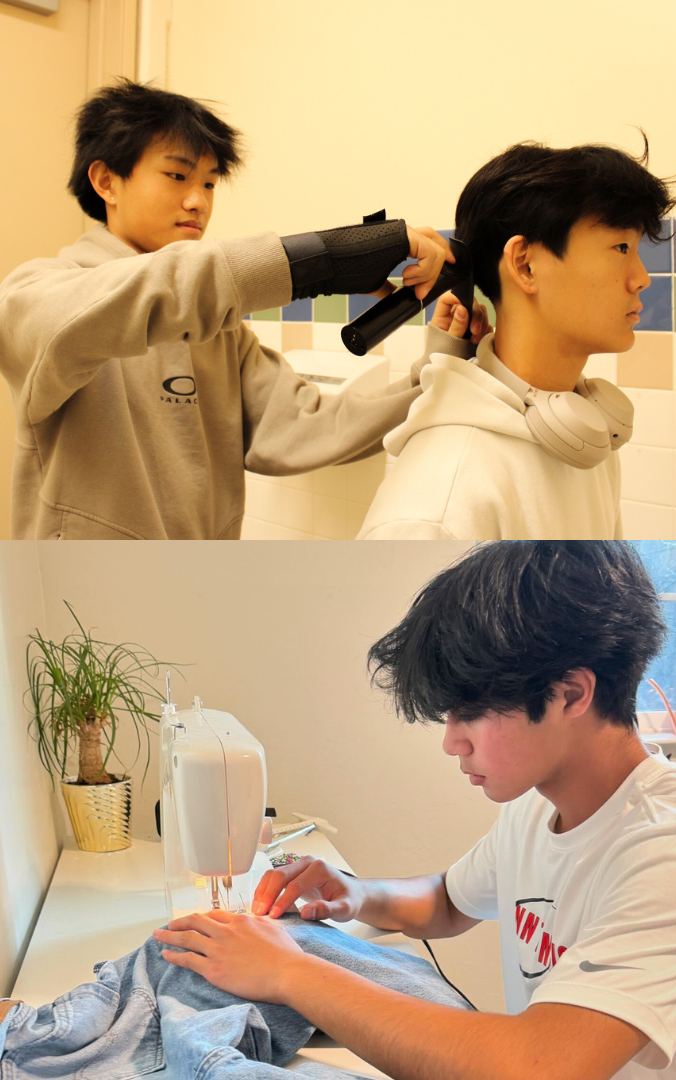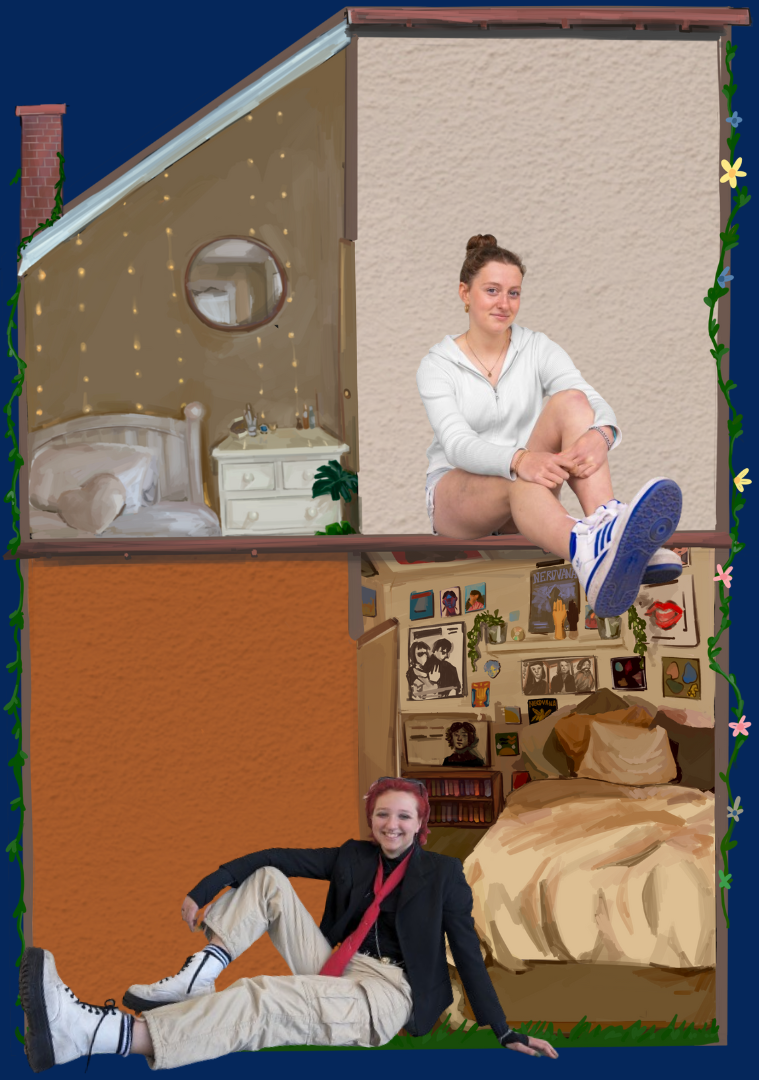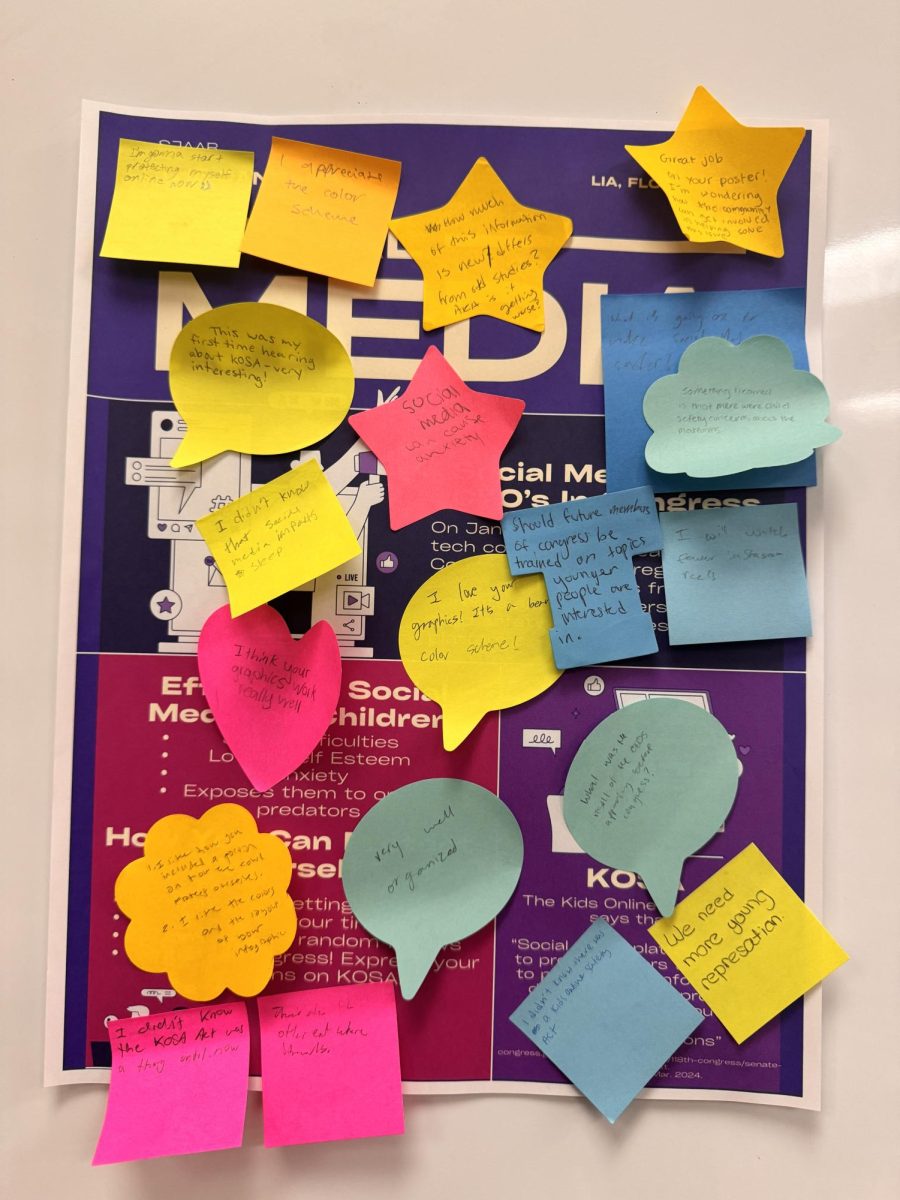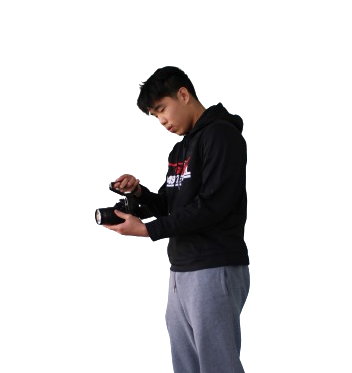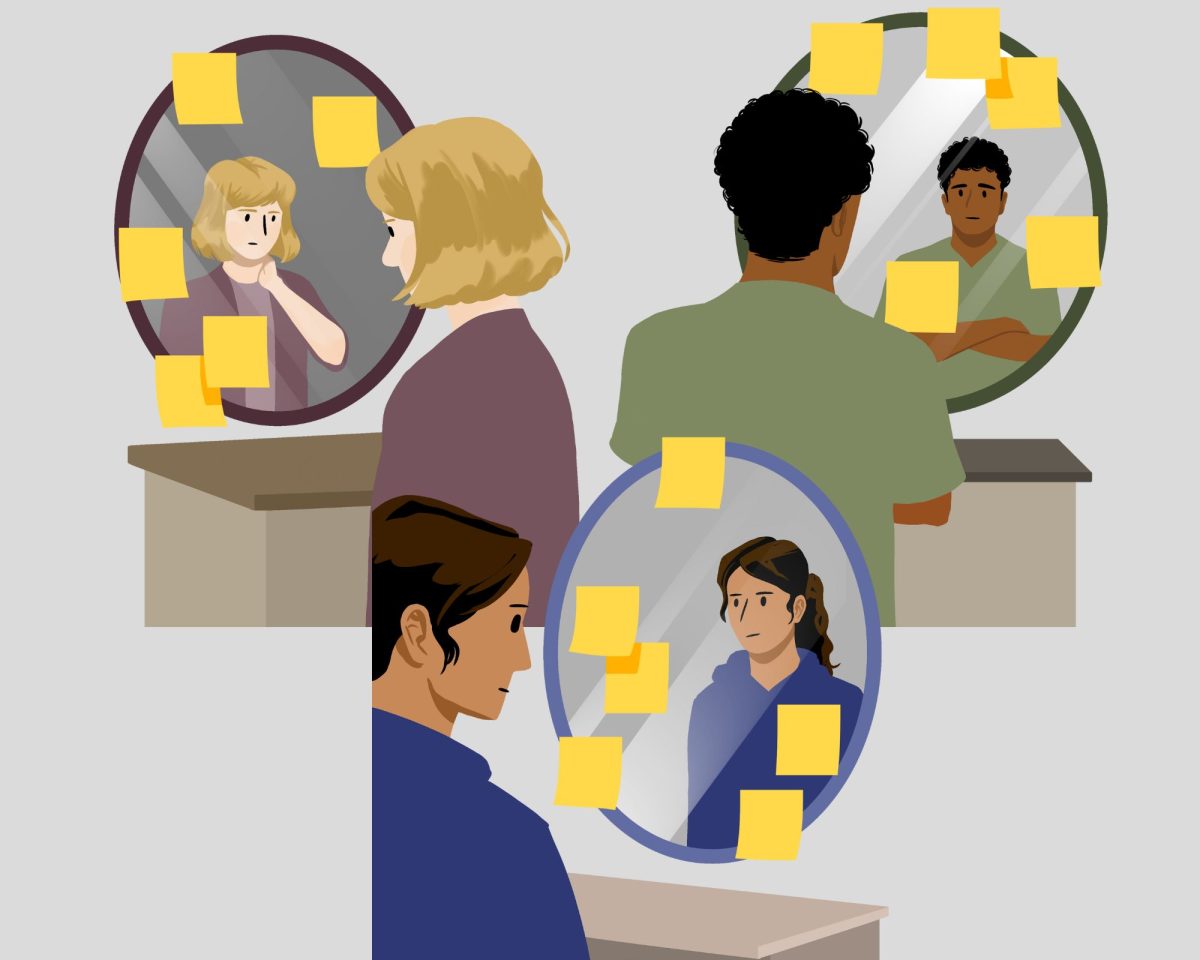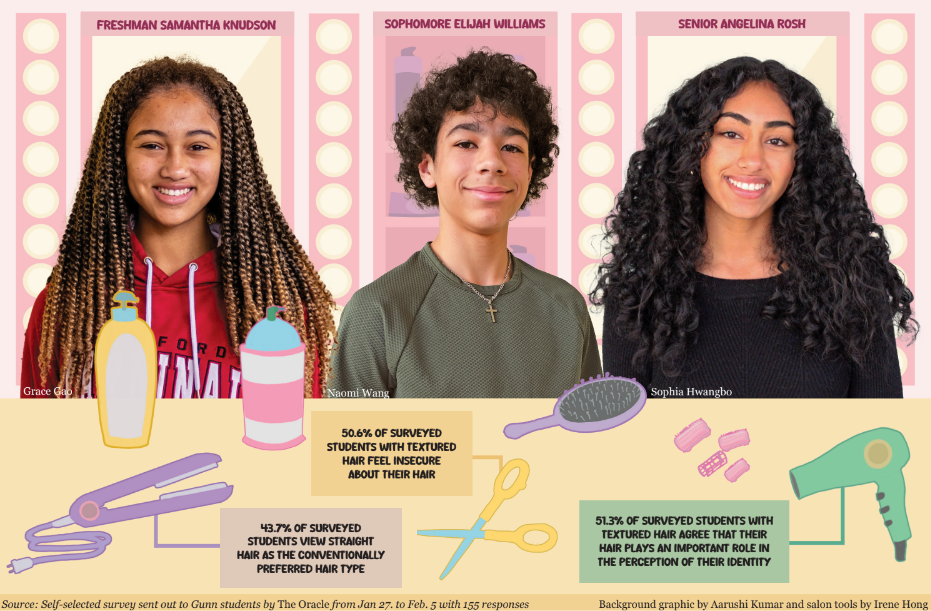Sophomore Tiffany Yang: divorced parents
According to the National Center for Health Statistics, around 40 percent of all marriages end in divorce, affecting roughly every other citizen, including sophomore Tiffany Yang.
Yang’s parents officially got divorced in December 2013, but the process took approximately three years to complete. “When the divorce trial started, in the beginning of eighth grade, that was the hardest part,” Yang said. “They were together for 25 years, and I grew up with that.”
The divorce brought change, both bad and good. The separation of Yang’s parents makes her feel caught in the middle. “It’s hard because I want to talk to my dad, but sometimes I feel like I can’t because there’s that tension between them and I live with my mom,” she said. “I don’t want to feel like I’m betraying her.”
Although the separation of her parents was difficult, Yang became more self-reliant and emotionally stable. “I think I became a stronger person and now I’m extremely independent,” Yang said. “I think divorces always make people stronger.”
Not only did Yang become more self-sufficient, but her relationship with her two older brothers also strengthened. Yang says that her brothers were there to support her during the adversity, and the experience brought them closer together. “Vincent helped a lot, and Andrew was kind of like my second dad,” she said. “They would try and shelter me from everything. That’s why I’m close with them.”
Since Yang’s mother has full custody, Yang has gotten much closer with her. She mentioned that although the divorce was difficult, her mother was able to become a more successful parent. “[She] has stepped forward a lot because she had to take care of three kids by herself being a single mom,” Yang said.
Without her dad, Yang has gained more independence since the divorce. “Before, life was a lot more strict,” Yang said. “I was way more restricted. I couldn’t sleep over because I was a daddy’s girl, so he wouldn’t let me do anything. Now I live with my mom and since there’s only one parent, rules become more flexible and I gain freedom.”
However, the absence of her dad was bittersweet, as it also affected activities that she used to do with him. “I used to golf with my dad, but now I just golf with my friends or by myself,” Yang said. “I still play golf, but not nearly as much as I used to when my parents were still married.”
Additionally, the divorce changed Yang’s attitude towards relationships and love. “Now, I’m kind of cynical on the outlook of marriage,” Yang said. “I kind of think that it’s really rare to find your ‘one true match.’ I don’t know if I’ll find the one guy that I’m going to be with forever, ‘cause forever is a long time.”
Yang also mentioned that while dealing with a divorce can be a difficult experience, it does not mean she is not okay. “Often I get, ‘Are you okay?’” Yang said. “I absolutely hate getting that question because people assume that just because your parents are divorced, you’re broken. It’s a sensitive question and it’s nice, but it’s just like, ‘Yes, I’m fine!’”
—Written by Lisa Hao and Yuki Klotz-Burwell.
Sophomore Catherine Schwarzwalder: adoptive parents
When sophomore Catherine Schwarzwalder goes out with her family, curious onlookers glance at her. With a last name like Schwarzwalder, you would not expect her to be Asian. “When people see that I’m Asian, they have this puzzling stare,” she said. “It’s kind of funny because people are too weirded out to ask. People don’t connect us to being family.” Schwarzwalder, a native to Suzhou, China, was adopted at nine months old by white parents. During the adoption, the agency told her parents that they had found her on the street in front of a fire station.
Though she may not look like her parents, she feels she is a part of the family, and the social attention now seems ordinary. “I feel like the relationship between my family and me is like that of a normal family,” she said.
Throughout her childhood, Schwarzwalder maintained an open and honest relationship with her parents. “[My adoption] was never something my parents kept a secret from me,” she said. “It’s something I grew up knowing.”
However, according to Schwarzwalder, her adoption made her upset when she was younger. “Little kids don’t really like to be different,” she said. “They’re afraid.” Now, she doesn’t think much of it.
Every now and then, thoughts about her biological family pop up in her mind. “Sometimes I think about my biological family and wonder what they are doing,” she said.
According to Schwarzwalder, her adoption can be a conversation starter, but she usually keeps it to herself. One person she can talk to freely about her adoption is her sister, Michelle Schwarzwalder. Michelle was born in the south of China and was adopted by the Schwarzwalder family when she was a year and three months old. Catherine was able to experience and see the process of adoption as her sibling became a new member of the family. The girls’ biological difference does not stop them from having a close relationship. “We’re basically just like normal sisters,” she said. “She bothers me a lot.” Because they do not have biological references of what their future appearances will be, the sisters joke about what they will look like.
Catherine feels that adoption has enriched her life. “It has opened me up to differences and has taught me to not judge someone right away,” she said. If given the chance to be born under different circumstances, she would not change a thing. “I definitely would choose to be adopted,” she said. “It’s crazy because they just pair up families with children randomly. They could have mixed up the stack and I could have been somewhere completely different right now. But I couldn’t imagine my life in any other way.”
—Written by Emily Kvitko.
Sophomore Viva Rose: gay parents
For many, the word “parents” may bring to mind a mom and a dad, but for sophomore Viva Rose, it brings to mind two moms. Rose’s parents are a married gay couple, one of around 115,000 same-sex households with children living in the United States. They have been married three times: once unofficially due to California’s ban on same-sex matrimony at the time and twice legally. The second marriage took place after California lifted its ban, but was not recognized again almost immediately due to Proposition 8. Only after the third time did the marriage stay official.
Rose was aware of her parents’ sexuality from a very early age. Since she was only a few months old, her family attended Camp Tawonga where there were sessions in which same-sex families shared time together. The camp not only gave her a sense of her unique family situation early on, but also provided an accepting environment. “My parents really wanted to envelop us as kids into a community where there are other kids like us,” she said. “It was really nice to be in a community where I could meet people who are similar to me.” The camp also instilled in her values that are central to her character today. “It taught me a lot about accepting people,” she said.
Outside of the camp, the Palo Alto community and people close to her have also been supportive of her family. “All our family friends are just so accepting of the choices we make,” she said. According to Rose, she has never felt openly judged or attacked for her parents’ sexuality.
However, misunderstandings about her family still do arise from time to time. “There’s always the common misconception that we have different ways of life or traditions,” Rose said. “But [being gay] is not a religion. My parents aren’t different from other people.”
In some ways, her parents’ sexuality has contributed to a unique family dynamic. Rose is not fully related to anyone in her immediate family; she and her brother share the same biological father but have different mothers. Still, the biological difference has no effect on the family’s closeness. “[My brother and I] don’t ever look at it like, ‘Oh, that’s my real mom;’ they’re both my real moms,” she said.
Because she has two moms, Rose does not have a father. The circumstance has not negatively affected Rose, but it has piqued her curiosity. “I’ve never really felt empty or like I was deprived of something,” she said. “It’s more like sometimes I wonder what it’s like for people who have dads just because I’ve never really had a close male figure in my life. But as far as parenting goes, we have a very complete family.”
Ultimately, Rose feels that having gay parents does not make her family different from others. “Yeah, I have two moms, but there’s nothing that pegs my family down,” she said. “We’re just a normal family.”
—Written by Chaewon Lee.


